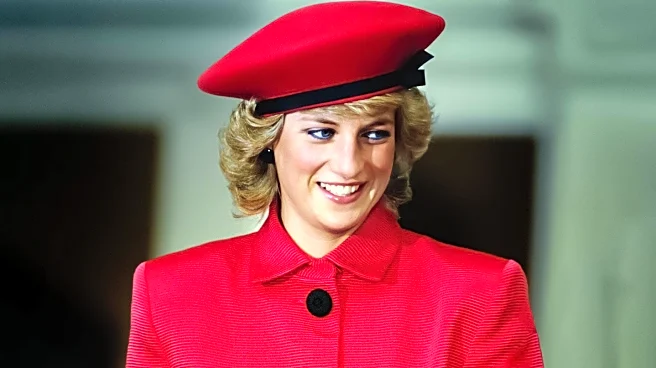What is the story about?
What's Happening?
The Duchess of Kent, Katharine Worsley, has passed away at the age of 92. Tributes have been pouring in from across Yorkshire, where she was born and maintained strong ties throughout her life. Known for her passion for music and charity work, the Duchess secretly taught music at Wansbeck Primary School in Hull for 13 years, underlining her commitment to education and the arts. She co-founded Future Talent, a charity aimed at supporting musically gifted children from low-income backgrounds. Her marriage to Prince Edward, the Duke of Kent, took place at York Minster in 1961, marking the first royal wedding at the cathedral since 1328. The Duchess was also the first royal to convert to Roman Catholicism in nearly 300 years, a decision that reflected her deep personal faith.
Why It's Important?
The Duchess of Kent's legacy is significant in the realms of music education and charitable work. Her efforts to support young musicians from disadvantaged backgrounds have had a lasting impact, ensuring that her influence will continue to be felt by future generations. Her conversion to Roman Catholicism was a notable event in the history of the British royal family, highlighting her personal commitment to her faith. Her long tenure as Chancellor of the University of Leeds further underscores her dedication to education and public service. The tributes following her death reflect the high esteem in which she was held by those who knew her and the broader community.
What's Next?
The Duchess's passing may prompt further reflection on her contributions to music and education, potentially inspiring renewed interest in the causes she championed. Organizations like Future Talent may see increased support as people seek to honor her legacy. The royal family and the public may also engage in discussions about her unique role and decisions, such as her religious conversion, which could influence future narratives about the royal family's relationship with faith and public service.
Beyond the Headlines
The Duchess of Kent's life and work highlight the intersection of royalty and public service, demonstrating how members of the royal family can leverage their positions to effect positive change. Her discreet approach to teaching and charity work suggests a model of service that prioritizes impact over recognition. Her religious conversion also adds a layer of complexity to the royal family's historical relationship with religion, potentially influencing future discussions about faith within the monarchy.

















